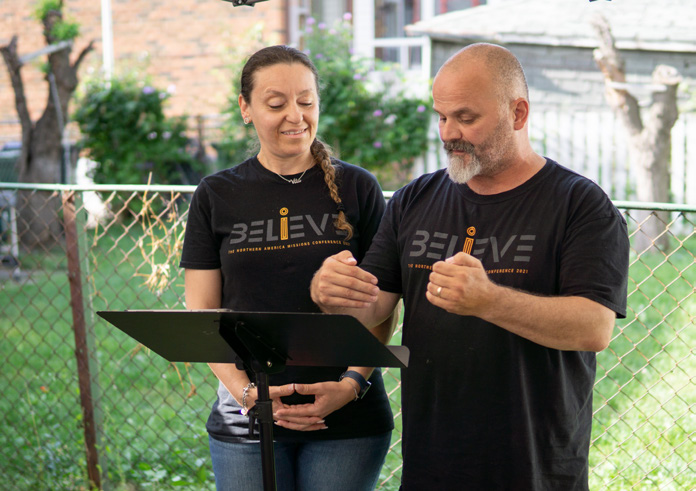
“Then Joseph said to his brothers and to his father’s household, ‘I will go up and speak to Pharaoh and will say to him, ‘My brothers and my father’s household, who were living in the land of Canaan, have come to me. The men are shepherds; they tend livestock, and they have brought along their flocks and herds and everything they own.’ When Pharaoh calls you in and asks, ‘What is your occupation?’ you should answer, ‘Your servants have tended livestock from our boyhood on, just as our fathers did.’ Then you will be allowed to settle in the region of Goshen, for all shepherds are detestable to the Egyptians.” (Genesis 46:31-34)
For my quiet times, I have been diving deep into the book of Genesis. This has been very inspiring for me, as I love the faithful examples that God has given us through our spiritual ancestors. However, I have been particularly inspired by the story of Joseph.
In my study of his very difficult life, I have found nugget after nugget of spiritual insight. This is why I love the Bible so much! After being a Christian for over 20 years, and studying the Bible intensely for just as long, there is still so much to learn. So I thought I would share my latest nugget with you.

Shana is fired up after being baptized in -10˚ weather.
In this part of Joseph’s story, he has already revealed himself to his brothers. He had been serving as Pharaoh’s right hand in Egypt; and through God’s sovereignty even in the toughest of challenges, he was being used to save Egypt and Israel from famine. To do this, Joseph’s family, Jacob, along with Joseph’s eleven brothers and their families, would have to move to Egypt since there was no food in Canaan. However, this created a difficult situation. How would the Israelites and the Egyptians coexist in the same territory? Would the Israelites, who were far less powerful than the Egyptians at that time, overstay their welcome? Joseph’s solution was to have them request to live in the land of Goshen. Goshen was the region of Egypt’s territory that was closest to Canaan, and it was where they raised their livestock. This was perfect for the Israelites. Not only was it close to their home, but they were all shepherds.
Most of us know that the nation of Israel came from Jacob. Jacob’s sons, and each son’s lineage, became the twelve tribes of Israel. Therefore, it occurred to me that God’s people started out as shepherds. Of course, the idea of shepherding would later be used as an analogy for how we are to care for other Christians, as God’s flock. (Luke 12:32) Even Jesus described Himself as the Good Shepherd. (John 10:11) As I was meditating on this, I began thinking about the idea of shepherding in God’s Kingdom. We have had the privilege of raising up and working with six awesome Shepherds and Shepherdesses-In-Training in the Toronto Church; and it is truly an honour and blessing to have their maturity, their servant hearts, and their wisdom to help and support us as we guide the church.

The Mem’s are our newest Shepherds-In-Training!
However, just because we have “Shepherds” in the church, doesn’t mean the rest of us don’t shepherd the church. The Hebrew writer wrote about this when he said, “See to it, brothers and sisters, that none of you has a sinful, unbelieving heart that turns away from the living God. But encourage one another daily, as long as it is called ‘Today,’ so that none of you may be hardened by sin’s deceitfulness. We have come to share in Christ, if indeed we hold our original conviction firmly to the very end.” (Hebrews 3:12-14) We are all called to “see to it…”, not just those who are Shepherds.
The same is true for other roles within the church as well. Though we have Evangelists, we understand that all of us are called to evangelize; though we have Ushers, we understand that all of us are called to serve; though we have Song Leaders, we understand that all of us are called to sing; and though some are in the Full-Time Ministry, we understand that all of us are in the ministry! (II Corinthians 5:18) Within each of these biblical commands, there are those that excel in those areas, and they are appointed to a specific role within the church to “equip [God’s] people for works of service” and to build up the body of Christ. (Ephesians 4:11-13) This is true of Shepherds too. They excel in shepherding. Therefore, they are Shepherds. But just because we may not be as gifted as them in shepherding, doesn’t mean we shouldn’t shepherd.


Ghislain and Elizabeth also help to shepherd the church!
Recently, I spoke to a brother about his household. As we spoke, he mentioned several situations where there was obvious and apparent sin that had not been addressed. It became clear to me that the brother I was speaking to subconsciously felt that it was someone else’s responsibility to “shepherd” these situations. I shared with him the biblical calling from God to be a watchman for his brothers. (Ezekiel 3:17-19) He humbly took my shepherding of him, and very quickly decided to repent. Praise God!
When the entire church does not embrace the calling to shepherd and disciple one another, the few who do can become despised, and then avoided. The world does not appreciate discipling or spiritual shepherding, and neither do those who are worldly. This was ironically the case even in Joseph’s time: “all shepherds are detestable to the Egyptians.” Though not a direct correlation, the principle remains true. Discipling is often the medicine we don’t want, but need. And yet, it is necessary that all of us contribute to this form of spiritual shepherding while we live in the land of Goshen.
Goshen? What does Goshen symbolize? Well “Goshen” means “land of plenty”, and it existed as a separate territory from the rest of Egypt. So if Egypt symbolized the world; and if God’s people lived outside of Egypt, outside of the world, you could say that Goshen symbolized, at least for a time, the Kingdom of God! And it was in Goshen that “the Israelites were exceedingly fruitful; they multiplied greatly, increased in numbers and became so numerous that the land was filled with them.” (Exodus 1:7) Let us be those shepherds in Goshen, those who “see to it” in one another’s lives, and who “hold our original conviction firmly to the end.” To God be the glory!

Evan Bartholomew
